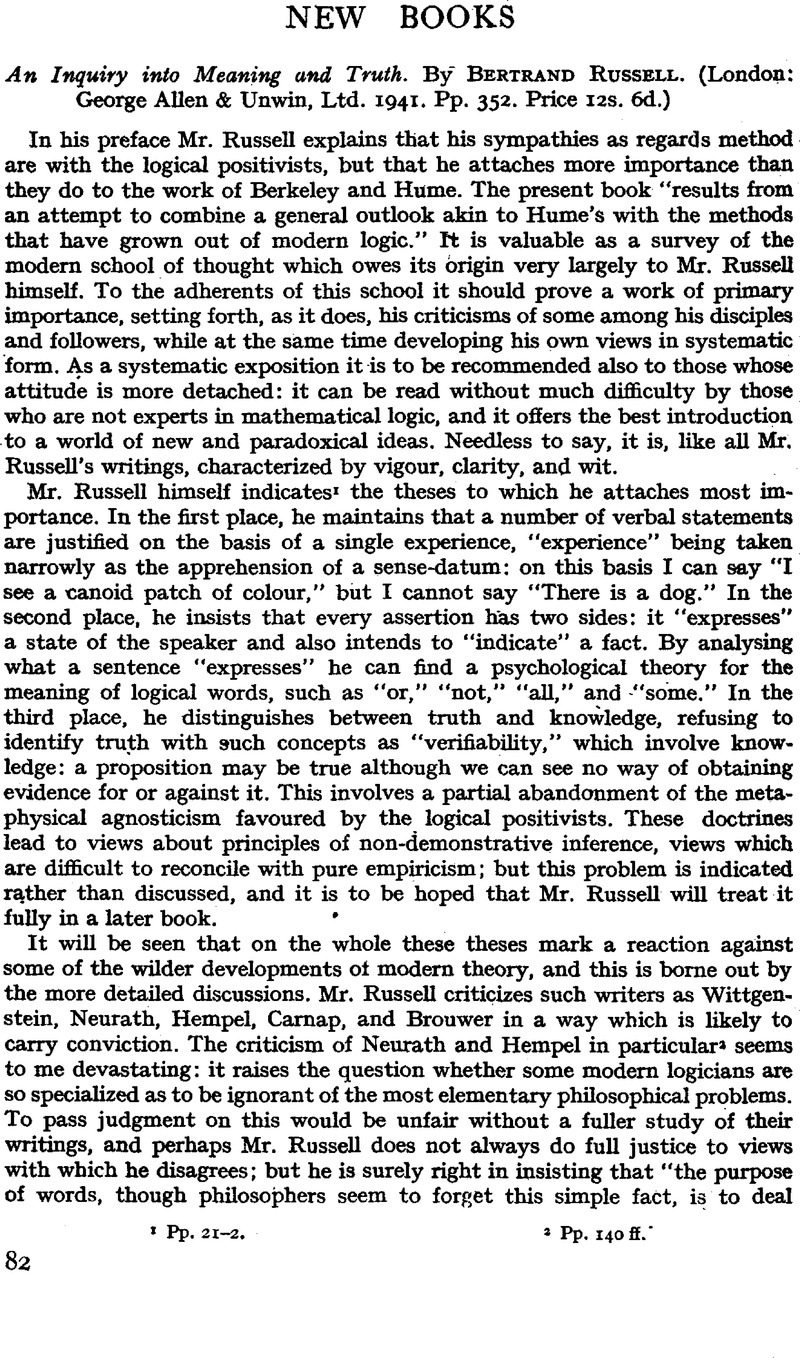No CrossRef data available.
Article contents
An Inquiry into Meaning and Truth. By Bertrand Russell. (London: George Allen & Unwin, Ltd.1941. Pp. 352. Price 12s. 6d.)
Review products
Published online by Cambridge University Press: 25 February 2009
Abstract

- Type
- New Books
- Information
- Copyright
- Copyright © The Royal Institute of Philosophy 1942
References
page 82 note 1 Pp. 21–2.
page 82 note 2 Pp. 140 ff.
page 83 note 1 P. 18.
page 83 note 2 He thinks that better rules of syntax will “automatically” prevent nonsense; p. 170.
page 83 note 3 P. 24.
page 83 note 4 Pp. 112–13.
page 84 note 1 Indeed he seems anxious to avoid any kind of ego. He says (p. 230): “Thus ‘I am hot’ means ‘hotness is a member of the awareness-family of this, and is compresent with this’.”
page 84 note 2 His failure to examine the aesthetic use of language in this connection leads him to assert that “the play Hamlet consists entirely of false propositions.”
page 84 note 3 Pp. 12 ff. See also pp. 117 and 131.
page 85 note 1 P. 188; but on p. 189 we are told that propositions are to be defined as psychological occurrences—complex images, expectations, etc.
page 85 note 2 P. 193. Mr. Russell is “not quite satisfied” that this causal definition is adequate.
page 85 note 3 P. 285. Similarly on p. 339, “The physical and physiological causation of percepts compels us to regard them as all in one region, which must be inside the percipient's head.”
page 85 note 4 P. 296.
page 85 note 5 See, for instance, pp. 313, 247, 291, 297.
page 85 note 6 P. 232.


